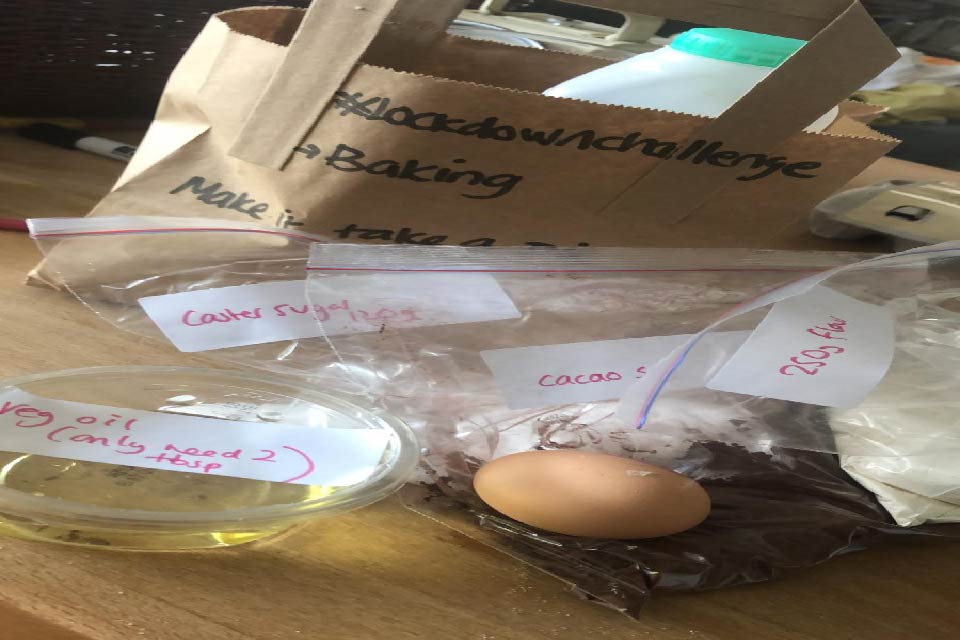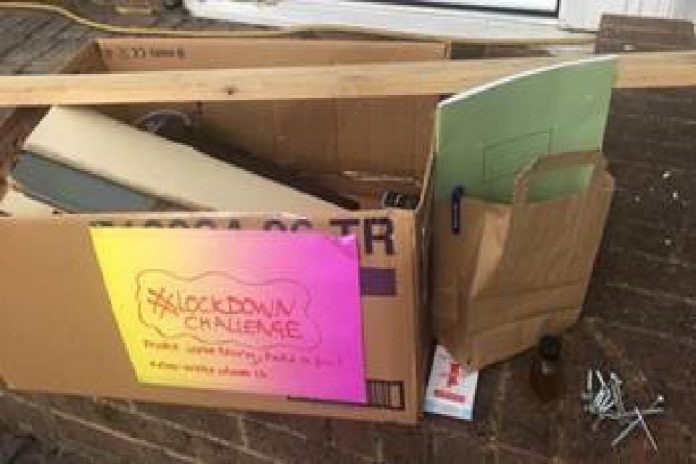Tell us about Leeds youth justice service
Jenny Bright, Operational Manager at Leeds YJS said:
“Leeds YJS is a large city service that is made up of around forty youth justice staff, plus specialist. We ordinarily work with three-hundred children and young people at any time. Leeds is an excellent service to work for. New, creative initiatives are encouraged and supported and a child first approach is adopted and followed. This stood us in good stead for lockdown and the changes that took place!”
How have your practices changed and how has your work been impacted since the pandemic?
Jenny added that:
“The pandemic has had a huge impact on how we work. We have worked very hard to ensure staff feel supported and safe, whilst still providing a good service to children, families, the courts and our other partners. Leeds City Council infrastructure has also been excellent to support remote working.”
Some of its new practices include:
Staff equipment & I.T.
All staff have the equipment to work remotely from home and can access the necessary systems to continue to support children and families.
Communicating with children
Smartphones were provided to all front-line staff and this allowed for creative ways of engaging children and families during the pandemic and ongoing. Some children have also preferred the phone as a means of communication. Staff continue to be based at home, however all of the children receive a minimum of one face-to-face contact per week, in addition to calls and digital communication. Leeds is a relationship based service and face-to-face work is integral to this. This was easier during the spring and summer months, where staff saw the children in gardens, parks and on walks. Staff continue to visit children whose behaviours were assessed as high risk of harm or who were very vulnerable throughout lockdown.
Laptops & learning
Staff also identified those children who were digitally excluded and secured a laptop for all children who need them. Staff worked hard to try and ensure children are safe and still have the opportunity to learn. All children on education, health and care plans were identified in the initial period of lockdown and support was provided to enable and encourage them to access education. As schools have returned, the YJS is ensuring staff know the education offer for all children and can support a plan if the child is on a part time timetable. The YJS has excellent links with its post-sixteen pathways workers who have been supporting children to access college places or to identify other routes.
Team check-ins
All the YJS’s teams have daily team check-ins first thing every morning. This has provided necessary communication, interaction, laughs and good ideas! Staff have really pulled together as teams.
Food parcels
Initially, all of the YJS’s offices closed with the exception of its central base. Within a few days of lockdown, a small team of staff used this base to organise food parcels for vulnerable families and this later expanded to cover vulnerable care leavers in the city.
Supporting local work around Leeds
Leeds is a city that has excellent partnership working and at no time in its history was this needed more. Leeds YJS looked beyond its youth justice duties and allowed staff to support the work of its local secure children’s home, to support its local youth service partners to engage children on the street and to support some of our minority communities with information and resources.
What do you think the biggest challenge is for the children you work with at the moment?
Jenny said:
“The biggest challenges for our children and young people are things that were there before the pandemic, however the pandemic has amplified them. Issues around poverty, for example, some families have literally had no food in the house when they called us, some families houses are freezing cold and some families have lost their income.”
Other challenges the YJS is aware of include:
- limited educational and employment opportunities
- children’s and/or their family’s poor mental health
- the impact of trauma
- children missing connections with friends
- children who feel safer outside their home
- children feeling there is little hope for their future
- uncertainty
- not being able to access support in the same way, or at all
All of these things require a multi-agency effort to ensure our children are not left behind.
Tell us about your #LockDownChallenge initiative
Nicola Lonsdale, Education Officer at Leeds YJS said:
“It started as a way of occupying the children and young people I was working with. I had limited time as a mum but knew I had lots of materials at home, so I gathered up wood or old paint and put together three #LockDownChallenge bags/boxes.
“First was a young lad living with his mum and his previous charges were damage in the family home. He wanted to repair the damage and make it right, so I delivered him paint and wood and he managed to make an upcycled dresser. He went on to do the whole bedroom. His mother was so proud and it encouraged her to start an online doll making business. Weekly you could see and hear the positive changes in their relationship.
Before and after photographs of a dresser that has been ‘upcycled’ through the #LockDownChallenge
“Other projects include a baking challenge and bird box making. I dropped the bag on the doorstep of the child’s house and it would include all instructions and materials needed. I chatted to the child and family beforehand to check what else they needed.
“For one lad, I liaised with Children’s Social Work service who provided the family (a grandad who had care of his grandson) with the equipment to bake. The child’s grandad took part in the activity and took pictures, which was great as this lad was a high-risk case, so actually getting him to stay in and bake with his grandad was huge. Post lockdown, he’s still not in school, and while part of my work is to support his return to school, I’m also offering other activities. He’s back with mum but this week doing an AQA home cooking activity to gain entry level while we sort his education.

An example of baking ingredients supplied as a part of the challenge
“As a service we had already embarked on training to involve the AQA Unit Award Scheme in our work and my colleague, Amanda Hart, had started to develop this. I thought a great idea would be to attach a qualification to lockdown challenge so that the children get formally recognised and gain some self-worth skill during these strange times. With no school and possibly no services looking out for them, our children deserve all the time and effort we can give them. As a result of this, I spoke with my colleague and we decided to put together AQA awards for officers to offer to children and young people.”
The AQA offers we provide to children are:
Making a wooden box
- entry level
- learner style – hands on/practical
- curriculum link – maths/DT
Planning, preparing and baking a chocolate cake
- entry level
- learner style – creative/independent/hands on
- curriculum link – science/tech
Creating zendoodles
- level 1
- learner style – creative/hands on
- curriculum link – art/mindfulness/calm
Emotional wellbeing
- entry level
- learner style – 1:1, calm/stress free
- curriculum link – PSHE
Preparing simple meals
- entry
- learner style – creative
- curriculum link – science/food prep
For the entire month of August, officers in West Leeds had a challenge to offer out as many of the AQA challenge bags as they could, the target being 10. The challenge in August was a ‘Rocky road make and compare challenge’. The YJS provided the checklist and all of the ingredients to the children.
September was a savoury dish challenge, using a cookbook for inspiration on using non-perishables. The YJS is currently planning October activity to be a creative one involving a charity.
Nicola sums up that:
“What started out as a way to engage children and their families at a difficult time, has turned into something I feel we can build upon and evolve as a service. There is no greater place for a child or young people than to be involved and included into a mainstream (or specialist) education package, that is both meaningful and purposeful. Our aim as Education Officers is to assist this process and make it our core business.
“In lockdown and as we move through these strange times, we have had to adapt. We have to ensure our children adapt. #LockdownChallenge was a way of initially connecting, making sure we kept children in the loop. I saw one of our high-risk children take part and some decide to go on and do their own projects beyond our contact.
“As we moved from full lockdown, the team embraced the AQA challenge, which is a useful tool to engage and give credit to someone’s work who might have never achieved an AQA.
“I hope we can continue to develop packages like this and maybe link with education providers to enable a firm basis for our children in YJS who are in transition to a suitable education package.”







